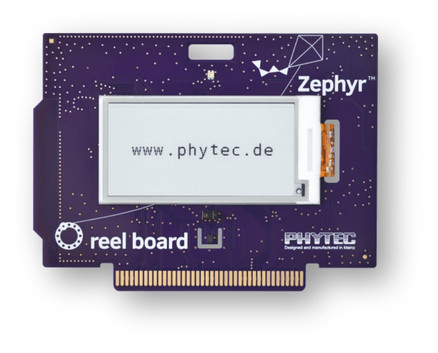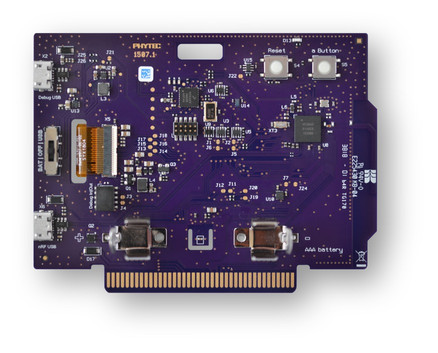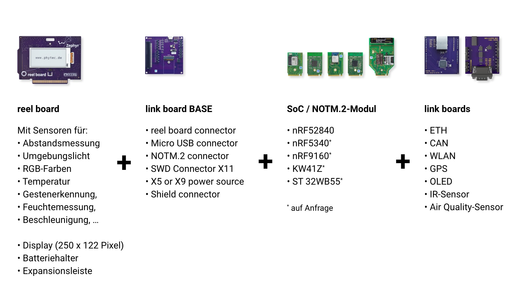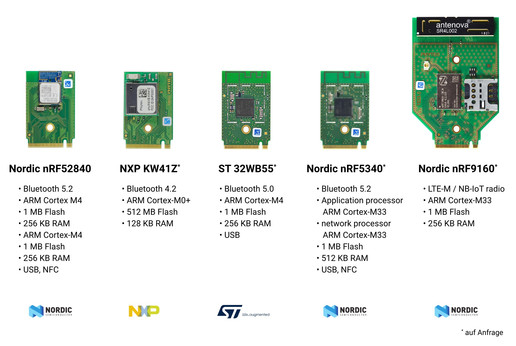reel board
nRF52840
Many possible applications in the low power area
- Nordic nRF52840 SoC
- Multiple environmental sensors
- Passive display
- On board debugger
- 2,4 GHz transceiver for BLE and IEEE 802.15.4.
- Can be expanded using expansion strips



92,5 mm x 70 mm

ARM Cortex M4
Start now!
An IoT board with many possibilities

The reel board is a low-power evaluation board based on the Nordic Semiconductor nRF52840 SoC. The board has a built-in debug adapter that is based on the firmware of the DAPLink interface. It is equipped with an electrophoretic display (EPD), environmental sensors (temperature, humidity, light, accelerometer) and a Bluetooth interface, which is why it is particularly suitable for the following applications:
- Battery operated sensor node
- Energy-saving, cost-effective HMI for remote control and monitoring of environmental sensors
- Temperature and humidity monitor
- Product, name or price tag
- Interactive badge for meetings and conferences
Matching SoCs via NOTM.2 module for your link board BASE on request:
Zephyr ™
The Zephyr OS has been hosted by the Linux Foundation since 2016 and offers practical, ready-made software components for easier development with the reel board. The following SW components can be implemented more quickly in your product with the Zephyr real-time BSP:
- device drivers
- (Network) protocol collection
- Over the Air (OTA) updates

link board BASE
With the link board BASE, further link boards or 3rd party shields in Arduino UNO R3 format can be connected to the reel board. It also has a NOTM.2 connector and a more powerful DCDC converter than the reel board.
The link board BASE can be used in two ways:
As an adapter
The reel board is plugged into the link board BASE. Interfaces and shields on the reelboard can be used as long as there is no conflict between I²C components. Care should be taken to ensure that the entire circuit is adequately powered.
or stand-alone
The NOTM.2 adapter is removed from the reel board and connected to the NOTM.2 connector of the link board BASE. The connection to the shield connector is identical to the configuration above, no software adjustments are required. The stand-alone configuration is suitable for applications in which interfaces on the reel board are not used or are in conflict, the performance of the reel board is insufficient or for prototypes in the field.
Link board extensions to the link board BASE:

link board ETH
- Ethernet expansion board
- Compatible with the Arduino UNO R3 connector
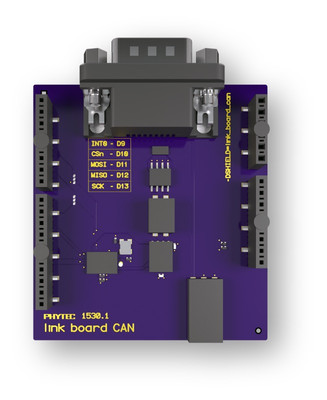
link board CAN
- CAN extension of the reel board
- MCP2517FD CAN FD controller
- CAN 2.0 B and CAN FD
| Radio receiver | 2,4 GHz IEEE 802.15.4, Bluetooth Low Energy 5.0 |
| Ethernet | 10/100 Mbit / s via link board ETH |
| USB | 2x microUSB (nRF / debug adapter) |
| UART | on chip |
| I²C | on chip |
| SPI | on chip |
| PWM | on chip |
| Display | Electrophoretic 250 x 122 pixels |
| User control elements | Reset button, user button, on / off button, power source switch |
| Expansion | Edge connector |
Additional advantages through extensive advance payments
The reel board _ at the Embedded World 2020

Our embedded experts are there for you!
Secure your personal consultation appointment quickly, easily and free of charge.
30 minutes exclusively for you and your project!
Education + Training _ Use our know-how for yours Productsdevelopment

With the know-how transfer from our experts to your developers, you will reach your goal faster!
Participants in our training courses receive a solid knowledge of professional hardware and software development.

Online seminars _ Helpful embedded knowledge explained in a nutshell in short video sessions

In informative online seminars with our experts and partners, we will inform you about exciting topics from the embedded industry.
You will get a free insight into new hardware and software solutions and learn more about special offers.
Other interesting topics:




